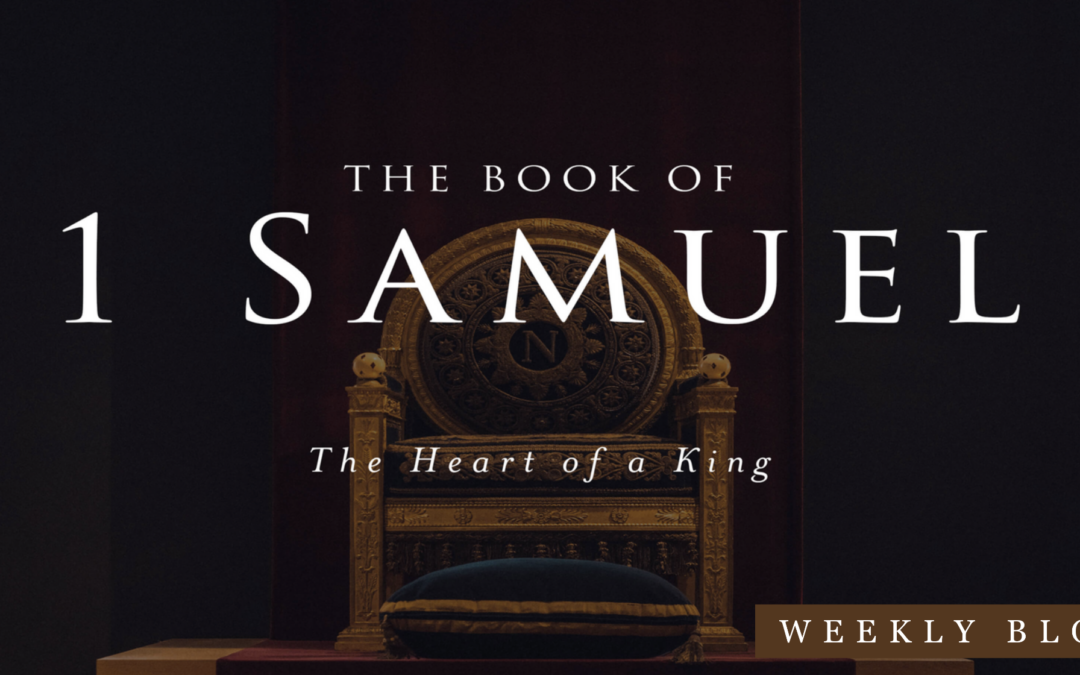THE BOOK OF 1 SAMUEL—Week 9
Crisis 9: Injustice (1 Sam. 18-26; focus on Chapter 24)
As men and women created in the image of God, we are imbued with many of the attributes of our Creator, even in our fallen state. Our ability to love, to imagine, to create, even our ability to feel sorrow and sympathy, in some way reflect the character of God. The same holds true when it comes to the idea of justice. As God’s image-bearers, we are born with an innate sense of justice. This truth is clearly evident in young children. If you have ever dealt with young children, you have likely heard a child exclaim, “That’s not fair!” No one has to teach a child to say that. It is hard wired into their souls. No matter our age, when our sense of justice is offended, it often elicits a strong, visceral reaction, and it is not uncommon for us to remain in a state of turmoil until that sense of justice is satisfied.
Though this week’s passage covers several chapters, there is one theme that runs throughout: the injustice David faces at the hands of Saul. Though David repeatedly proclaims and even proves his innocence, Saul nevertheless allows paranoia to taint his view of David and his motives. In these chapters Saul conspires to kill David no less than 10 times. Saul pursues David relentlessly, forcing David and his followers to constantly move from hiding place to hiding place. At one point, things get so bad in Israel that David is forced to take refuge with Israel’s sworn enemies, the Philistines. Saul even gives David’s wife, Michal, to another man. In the passages where David pleads his innocence, the anguish he is experiencing is palpable. Yet, despite the injustice he faces, David never lashes out at Saul. Though he has multiple opportunities to exact revenge on Saul, or even kill him, he never takes advantage of those opportunities. In fact, rather than take revenge on Saul, David goes out of his way to humble himself before Saul and to honor him. Though David does not sit passively by and allow the injustice of Saul to overtake him, he also does not take justice into his own hands. David protects himself and his followers, but he entrusts his future to God.
In the story of David, we are reminded that we live in a world filled with injustice. We long for things to be made right, yet, as the Hollywood box office proves, our sinful hearts prefer revenge to restoration. Unfortunately, the revenge we seek never brings us the peace and satisfaction we desire. David’s humility, perseverance, and faith in the face of injustice point us to a better path, a path that was made perfect in Jesus Christ. In Phil.2:1-11 we read how Jesus confronted the injustice of this world by humbling himself, laying aside his rights, and dying for our sins. Though he was wrongfully accused and reviled by those he had lovingly created, Jesus did not revile or threaten in return. Instead, he entrusted himself to the goodness of the Father (1 Peter 2:21-23). While the world equates justice to taking the life of those who offend us, Christ brought justice by giving his life for those who offended him (Rom. 3:21-26).
As followers of Christ, we are called to confront the injustice we face in this world, but we must be careful to do so as Christ did. We must not be like Saul and allow our emotions or fears to taint our view of the reality we face. Instead, we must view that reality through the lens of the gospel. We must remember our ministry is not revenge; it is reconciliation (2 Cor. 5:16-21).
Questions:
- What are some of the injustices you have faced? What was that like? How did it make you feel? Has that injustice been resolved? If so, how?
- What are some of your favorite revenge stories or movies? Why are they so appealing? What does their appeal say about our world?
- How does our desire for justice reflect the heart of God? How does sin taint that desire?
- The world offers many solutions to the injustices we see around us. How does the gospel differ from those solutions? How is the gospel a better solution?






